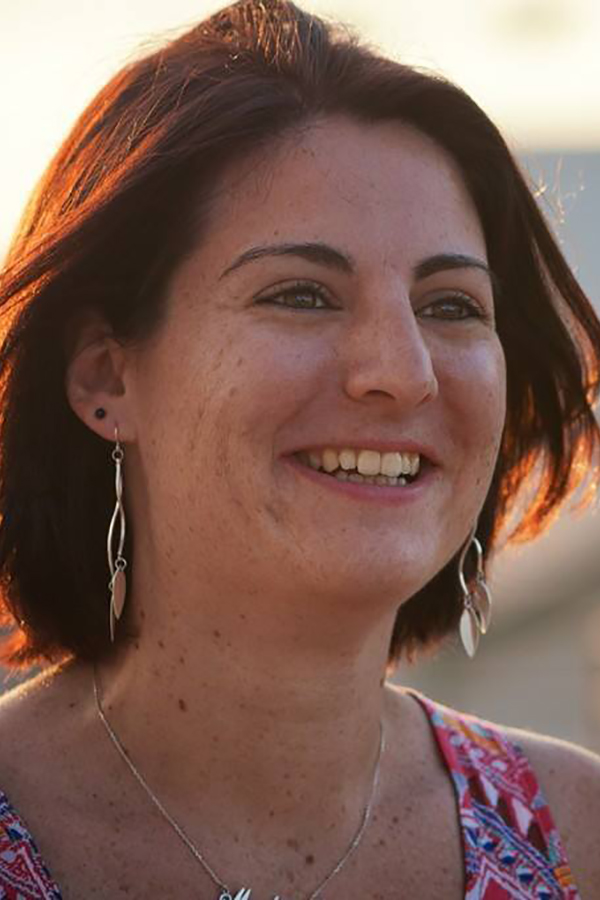WIA Mentorship Case Study: Marlène Chazot / Megha Jois Mugur
Working in Los Angeles in her first role as a Jr. Pipeline TD, Megha Jois Mugur learns the ropes from Vancouver-based TD-turned-CFX artist Marlène Chazot.
Megha Jois Mugur studied engineering in her native country of India before moving to the U.K. to study Digital Character Animation at Teesside University, and then the U.S. to earn an MA in Character Animation from the Savannah College of Art & Design. Although she had been busy building credits as an artist since graduating from SCAD, in 2014, she knew that with her background in engineering, embracing the technology side of the industry would give her the best chance at obtaining a visa allowing her to work in the United States.
“The studios are much more willing to sponsor visas for technical artists than for animators, so that was definitely a factor I considered while making the transition to TD,” Mugur explains. “However, I have always had a passion for both animation and programming, with a background in both subjects — I’ve always loved solving puzzles and analytical problems, received a formal education in engineering, and my first job was at a software firm.”
Beginning her transition from artist to technical director, Mugur secured an entry-level job as a Jr. Pipeline TD at motion capture facility House of Moves, in Los Angeles, and was looking for guidance in how to succeed in her new position. “I was entering into a new role, and I didn’t know anybody else in my network who worked in that position,” she recalls.
WIA’s Mentorship Program paired Mugur with Marlène Chazot, who is originally from France, and is currently working as Creature FX artist at Sony Pictures Imageworks in Vancouver. While both women share the experience of being immigrants, in a twist, Chazot began her career as a Pipeline TD and was now working as an artist; the reverse of the journey Mugur was embarking upon. “I was in awe of all the work she had done, including the same kind of roles that I wanted to be in,” Mugur says of the pairing. “Plus, she transitioned; she went from a technical background to a more artistic role, and I went from an artistic background to a technical role.”
Forging a Path in the Industry
First and foremost, Mugur needed to determine her goals for the mentorship. “Basically what I was looking for from this program was some sort of guidance, somebody that I could reach out to with questions, not just about the role, but also the industry as a whole,” she says.
Meeting bi-weekly via Skype, Mugur told Chazot about her background and what she was hoping to achieve in her career. “One of the first steps was that she needed to clarify what she actually wanted to get into,” says Chazot. “She was going to do the opposite of what I had done, so I gave her an overview of all the technical jobs that I knew existed in the effects and animation industry to give her an idea of the variety of stuff she could potentially get into. Once she understood the roles, I asked her to look into them more and try to figure out a bit more about what she wanted to do. And then we would work towards that.”
For Mugur, a sense of shared experience was perhaps one of the most valuable parts of her mentorship with Chazot. “From my perspective, from my unique journey, I feel that, as an immigrant, we have so many questions about visas. And even if the mentors don’t know a lot about visas, even if they cannot help, just the fact that they are able to understand our situation makes us feel so much better,” Mugur relates. “Because I feel that not many people in the industry understand our struggle. Being from France, Marlène moved to Canada to do the TD job, and before that she studied in the U.K. We went to the same school in the U.K. — at different times, of course — but we went to the same university, so there’s also that. She’s familiar with the visa struggles, and just the fact that she was able to understand what I was talking about, all the challenges that I was facing, made me feel better.”
Learning on the Job
Mugur readily acknowledges that having a mentor helped her maintain confidence in her new role as a Jr. Pipeline TD. “I had a whole range of new technologies to learn, and it was overwhelming,” she admits. “I felt intimidated a lot. So Marlène helped me to be confident, and she kept telling me that it’s natural, any new TD will have that learning curve, and it’s okay to not know something, and that was a huge help for me.”
Chazot also gave Mugur regular assignments to help her sharpen her programming skills. “Meg wanted to get back into programming,” Chazot recounts, “So some of the homework I was giving her was to try to identify a problem that she wanted to solve and then find a way to actually solve that problem.”
“Marlène gave me feedback on my coding style, which was great,” says Mugur. “She would ask me a lot of questions, which really helped me refine my approach,” she continues, adding, “The mentorship definitely reinforced the idea that at every stage in your career it’s good to have somebody you can reach out to for guidance, somebody to answer your questions.”
Parting Lessons
“It would have been nice to have someone to look up to as an example,” Chazot says of the impulse to become a mentor. “I come from a very technical background and a lot of the time was the only woman in my department. I never had someone who actually took me aside and gave me advice, so I wanted someone else to have that opportunity.”
As a first-time mentor, “I think I learned as much as she did,” Chazot maintains, adding that the mentorship process seemed intimidating at first. “I was terrified at the start because I didn’t feel like I really had something to give,” she confides. “But I knew she was looking to transition between technical and creative roles, and that is something I’ve done several times before,” she continues. “And as it turned out, all I had to do was answer her questions, give her feedback, and give her the encouragement she needed. Just telling her that she could do it did most of the trick, and then she went and did everything herself. Just knowing that someone else had done it, I think, gave her that little push.”
As for Mugur in her new role, “I love my job as a Pipeline TD!” she enthuses. “I get to use both artistic and technical skills on this job. It honestly couldn’t be better!”


